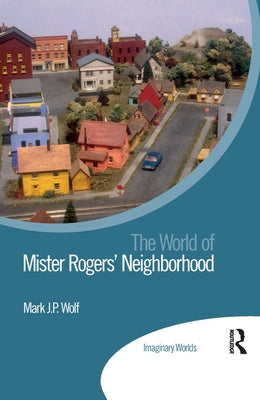Before you leave...
Take 20% off your first order
20% off
Enter the code below at checkout to get 20% off your first order
Discover summer reading lists for all ages & interests!
Find Your Next Read

Unlike many children's television shows, Mister Rogers' Neighborhood did more than simply entertain or occupy children's attention. The show educated them in the affective domain, encouraging such things as appreciation for difference, collaboration, self-expression, and self-worth. It also introduced them to the areas of culture, art, and music through guests, trips, art objects and processes, and demonstrations, making it accessible and meaningful in a way that a child could understand. While the educational content of children's television programming has improved greatly since the late 1960s, no other children's program has ever attempted such a mix of high art, low art, folk art, industrial production, learning in the affective and social domains, and more, all with a whimsical sense of humor, insight, and a level of interconnected detail unmatched by any other children's television program. This book illuminates and examines the world of Mister Rogers' Neighborhood through world design, narrative, genre, form, content, authorship, reception and more.
Mark J. P. Wolf is a Full Professor and Department Chair of the Communication Department at Concordia University, Wisconsin. His books include Abstracting Reality, The Medium of the Video Game, Virtual Morality, The Video Game Explosion, Myst and Riven: The World of the D'ni, Before the Crash, Encyclopedia of Video Games, Building Imaginary Worlds, The LEGO Studies Reader, and Video Games Around the World. With Bernard Perron, he is the co-editor of The Video Game Theory Reader 1 and 2, and the Landmark Video Game book series.
Thanks for subscribing!
This email has been registered!
Take 20% off your first order
Enter the code below at checkout to get 20% off your first order